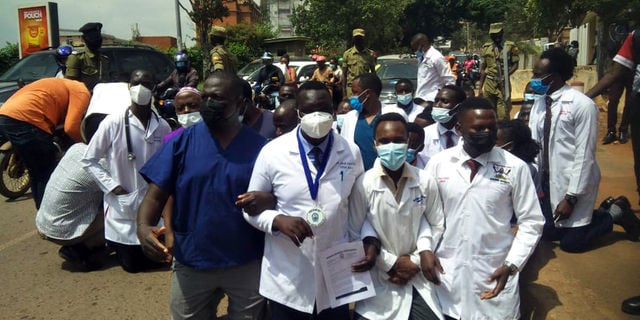The Center for Health, Human Rights and Development (CEHURD) has blamed the government for failing in its obligations to protect its citizens from violation of their rights by resolving the unending strikes by medical officers.
A number of medical officers including specialists and Senior House Officers (SHOs) have been on strike over salary and title disputes and failure by the government to pay their allowances respectively.
According to the CEHURD executive director, Fatia Kiyange, the ongoing strike by the medical officer affects the already fragile health delivery system.
“We are concerned about the government’s slow response to the issues raised by the health service providers. Their strike affects the already fragile health delivery system and we need to pay attention to it,” says Kiyange.
Similar concerns are raised by the organization’s deputy executive director Noor Nakibuuka who says the absence of senior house officers who provide over 60% of labour in public hospitals means poor service provision.
“The strike by specialists, Senior House Officers and the non-deployment of medical interns will have catastrophic consequences on the ability of health facilities to deliver health services to the vulnerable poor. The SHOs for example provide about 63% of the labour in regional and referral hospitals and provide support supervision to medical interns who handle emergencies. Their absence from facilities means that service provision will be curtailed,” Nakibuuka noted.
The two observe that labour disputes in the health sector are largely occasioned by budgetary constraints, tasking parliament to strongly take on the appropriation and oversight functions to have these disputes resolved once and for all.
The Ministry of Health has also been implored to review the current internship policy to find a viable yet sustainable approach to the internship.








